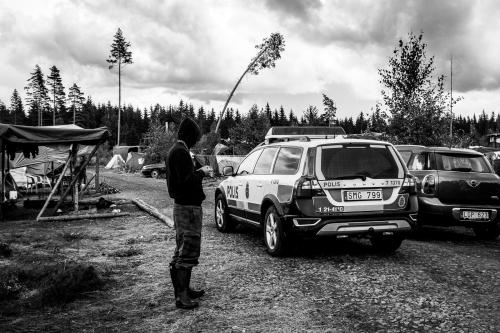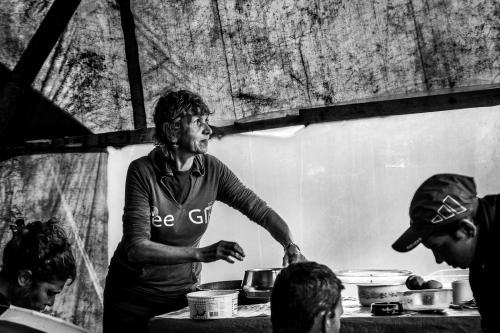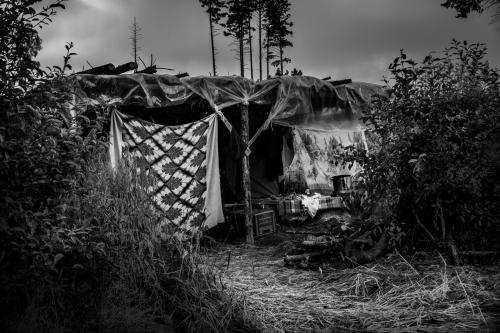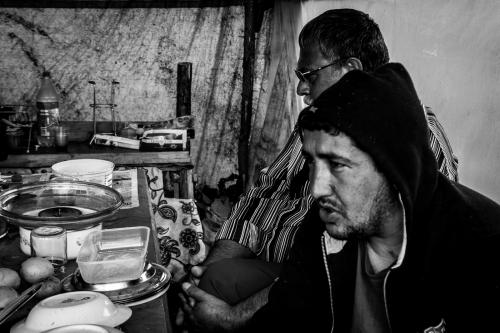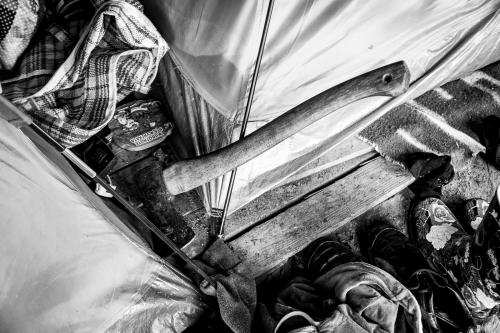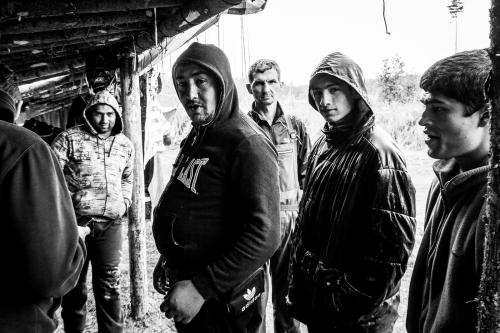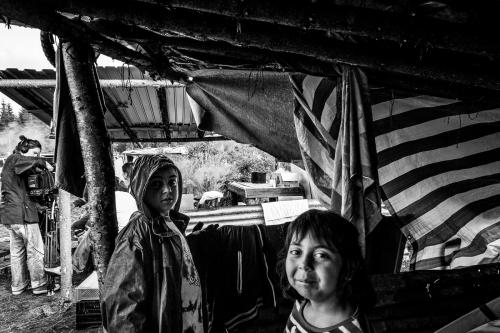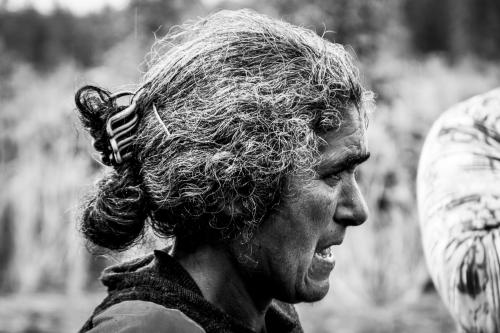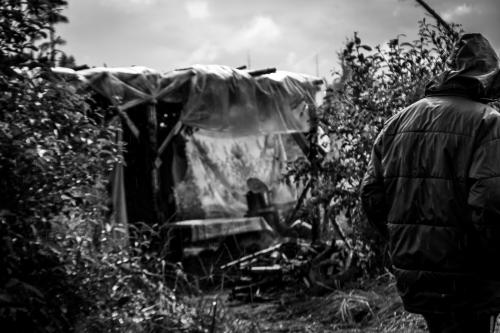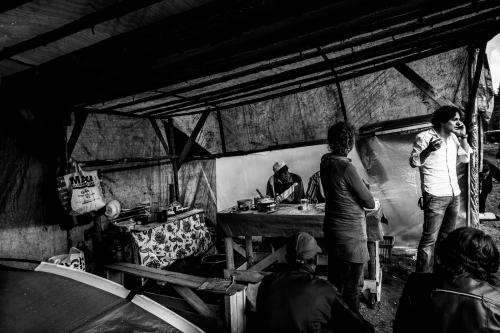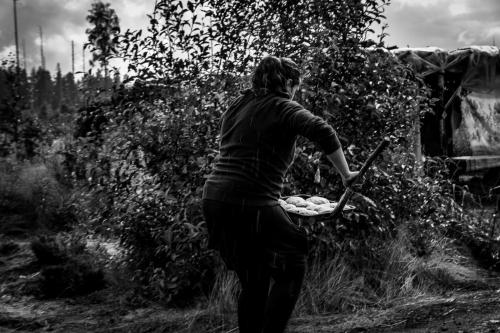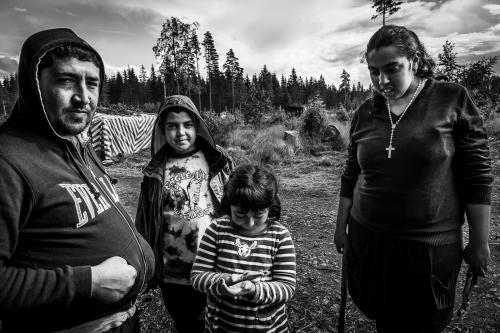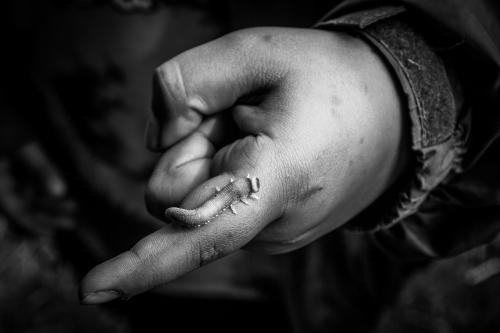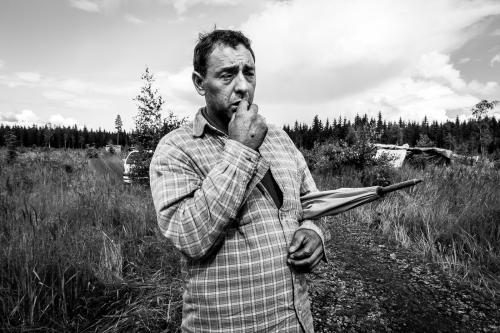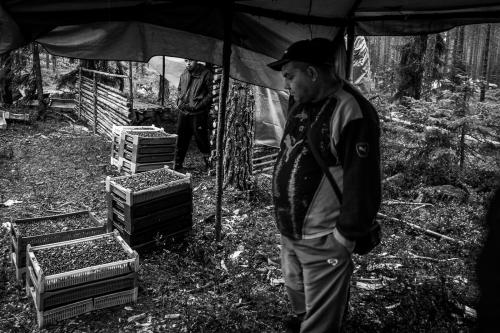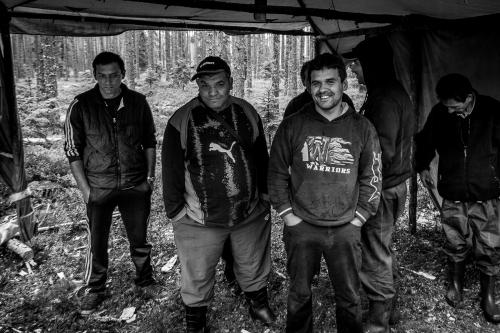INDEX
Photo Essays
Myanmar - On the Circular
Afghanistan - Strengthening the Rule of Law
Sweden - Blue Gold
Talibé - The Least Favored Children of Senegal
Children of the Americas
The Georgia Files
A Life Displaced
Resiliance Comes in Many Shapes
Women Reconstructing a Country
Lomisoba - A Feast of Many Meanings
Chiatura - On the Manganese Trail
Wall Art & Online Training
Wall Art
Online Photography Training - Basic Photography for Peace Security and Development Monitoring
Sweden
Blue Gold
Migrant workers often fall prey to dismal working conditions. They scavenge on a global labour market and take on any trade in order to preserve their dignity. In so doing, they can become the ill fortuned protagonists of trafficking, forced labour and unwarranted abuse from the communities they allegedly “invade”. While it may seem a grim exaggeration, this is exactly what happened to hundreds of people in Sweden during the summer of 2012. Compelled by the promise of an unregulated blueberry market, they drove into small communities and spread across the forests in search of “blue gold”.
By July, the blueberry season was in full swing and an overwhelming majority of the blueberry pickers were living in make-shift camps without adequate access to water, electricity or sanitary condition. Unlike previous years, the exceptional rain and cold provided a meagre yield of berries. Whatever was found made its way through Bulgarian foremen at “collection points” onto the Swedish market via local companies. Fully aware of the situation, many covered their license plates while purchasing the berries at the points.
Lack of blueberries meant lack of revenue and many resorted to petty theft to make means end. Consequently, rising tension with the communities resulted in clashes and even direct attacks on the camps. Hatred and prejudice began to surface while the local authorities turned a blind. Some even blamed the brewing conflict on the workers for “devastating the forests”.
The little money earned were in many cases collected by the same people that had organised the transportation to Sweden. Hence, the workers and their families became stranded in a country some could not even name. Many were left to fend for themselves while requesting assistance from the Bulgarian Embassy and the Swedish State.
With no way of making enough for a safe return, a large majority began walking on foot towards the capitol. Exhausted, cold and blistered they arrived to populate public parks in the vicinity of the Embassy. Following a surprising deliberation by city officials, a school was opened to house the stranded while the Swedish Civil Contingencies Agency (MSB) was practicing humanitarian responses a few hundred meters away.
Sweden, refusing to acknowledge the situation as a humanitarian emergency, pressured Bulgaria to transport the workers to their home communities. The escalation brought the Bulgarian parliament to a vote. Narrowly passed, it allowed for a limited number of military busses to take the workers back to their country.
There is something telling about societies in the way the underprivileged are treated, the abuse they endure, and the shame bestowed their survival. Allowing people to fall between the cracks in a system which veils itself under the guise of flawlessness is perhaps the greatest sin of modernity. While Sweden has an excellent record in exporting values onto the international community – it utterly failed to respond to what ultimately was a handful of people. Minorities in many eastern European countries have long been known to be purposefully marginalised. But it was in the forests of Sweden that the fruit of their labour was reaped by companies that were fully aware of their part in exploiting their condition.

